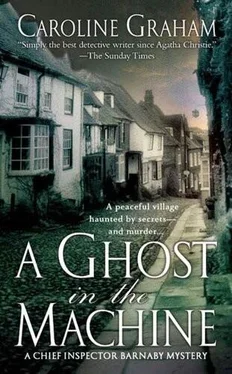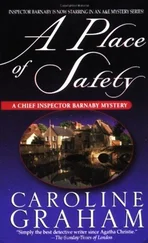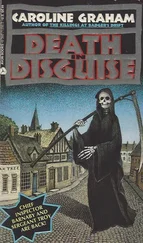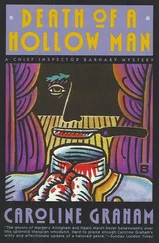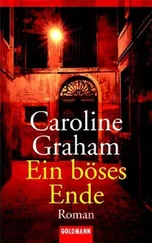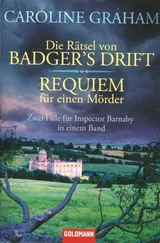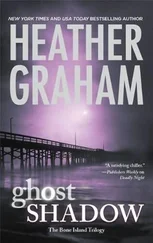“There’s no chance of that,” said Dennis firmly. “A crime like this is what the police call a domestic. That means only the family of the mur – perpetrator is at any sort of risk. And in any case, the police seem to think the lad’s already in London.” This last sentence was pure inspiration.
“I’m all by myself.” Benny had jumped to her feet and looked ready to fly away.
“Benny, look – where do you want to stay tonight? Over here or in the flat?”
“At home. This place is so big.”
“So what we’ll do is go and check it out right now for security, all right? And then we can go and buy anything we need – window locks or whatever – and I’ll fit them straight away.”
“Oh, Dennis.” Benny sat down again. “What would I do without you?”
A long time ago, nearly eight years to be exact, though it seemed several lifetimes to him, Mallory Lawson had been a stable, healthy and contented man. He had always wanted to teach and, after leaving Cambridge with a 2:1 in Biological Sciences from Downing College, had obtained a Post Graduate Certificate in Education at Homerton and promptly set about it. He applied first for a junior teaching post in a comprehensive school in Hertford but, to his surprise, did not even get an interview, so took a position at an excellent middle school in the Fens, near Ely. He had already fallen in love with a beautiful girl, Kate Allen, then reading English at Girton, and by the end of his first term in the new school they were married. Kate managed to get her foot in the door of a major London publishing house – the first step towards her ambition to become an editor – and commuted to London every day.
Young, childless and with only themselves to please, instead of getting lumbered with a mortgage the Lawsons rented a small flat in Cambridge. They entertained friends, went to concerts and theatres, took long, expensive holidays and generally had a wonderful time. While Mallory was at Little Felling he continued to write and research, publishing several papers including “The Transmigration of Whooper Swans” in Nature magazine, which was especially well received. It was at a conference that he met the head of a direct grant upper school at Cheltenham, who suggested he apply for the position of Head of Science there when the vacancy arose at the end of the current term. Mallory did so and, after a nail-biting two weeks on a short list of three and a second interview, was successful.
At this point in their lives Kate was pregnant. Both of them, tremendously happy at the news, became suddenly and seriously aware that it was time to settle down. Time to do all the responsible things. Buy a sensible family car (Mallory sold the Morgan quickly, even at small profit) and, of course, a house. Three bedrooms and probably just a semi to begin with. Leaving their Cambridge address with estate agents, they were astonished at details of the local property that started arriving through the post. In Cambridge they knew prices had tripled over the past ten years but that was a university town. Oxford was the same, if not worse. But this was the country, for heaven’s sake.
In the end, as both wanted to live in Cheltenham itself, they chose a Victorian terraced house, took out a hundred per cent mortgage and used their combined savings to decorate, rewire the place and buy more furniture. Kate gave up her job to freelance and, first-class copy-editors being extremely rare birds, continued to find work. She eased off somewhat after Polly was born and began reading as well as editing manuscripts. This was much less demanding, and easier to pick up and put down when a fractious child needed attention. Not so well paid but you couldn’t have everything.
And so the Lawsons lived and modestly prospered. Kate fed the family. Mallory paid the heavy mortgage, all the other bills and kept the car on the road. Polly, intelligent, self-willed, secretive even then, thrived. She proved to be good at science, outstanding at maths and very good indeed at games, both on and off the pitch. Everyone wanted Polly on their side.
When Mallory had been at the Willoughby-Hart School for almost ten years the deputy headship became available and it was discreetly suggested that an application from himself would not be unfavourably received. And so it proved to be. But then, barely a year later, something happened that changed all their lives, and immeasurably for the worst.
Not too long after this catastrophe occurred, when they were already edging towards what proved to be a bottomless pit of despair, Kate looked back at their happy days in Cheltenham and wondered at her own complacency. But wasn’t everyone like that until something dreadful happened to them? Tutting and sighing and shaking their heads at someone else’s tragedy on the news; enjoying Crimewatch as if it were a drama series but with the added spice that the enactments had once happened for real. Voyeurs one and all, comfortable with the knowledge it would never happen to them.
This downward spiral started with a television programme caught late at night and quite by accident. Mallory was on the point of switching off after Newsnight and going to bed when his attention was fatally caught by the opening credits of a documentary. The programme itself would show a secondary modern school in a desolate and deprived area in the North-East of England. Scarred buildings in a scarred landscape struggling somehow to contain and even attempt to teach scarred children. What the media called a “sink school.”
Mallory recalled that, only the other day in the senior master’s common room, frivolous attempts had been made to define this term. The overall favourite, “the rubbish that’s left behind when the plug’s been pulled,” got several laughs and a round of un-ironic applause.
Mallory sat for a long time, through the night in fact, after the programme had finished. He could not put the pinched, bitter, hopeless faces out of his mind. A sense of guilt, of shame even, began to pervade his thoughts. He remembered his youthful idealism, recalled the ferocious arguments with fellow students who had thought him mad wanting to teach at the rough end of the market. A waste of a Cambridge degree. Angrily he had demanded to know how it could ever be a waste to open windows in the minds of disadvantaged children, admitting light and hope, transforming their lives. This provoked both tears and jeers and the sincere hope that, when the film was made, Tom Hanks would get to play Mallory.
How would his life have gone, Mallory wondered now, if he had got the very first job he had applied for? The one in the comprehensive. From the beginning Kate had understood and sympathised with his ambitions; they would have been just as happy. There would still have been Polly. And he would have been of some real use in the world.
It was this observation that truly struck home. For Mallory was aware that, if he left his present job, no child would lose out by one iota. The school’s reputation was such that he would be quickly and easily replaced by someone at least as good, if not better. But there were places where his presence could make a huge difference.
Understanding this Mallory immediately saw himself embroiled in situations of high drama where not only his teaching skills but his heart, soul and every scrap of his considerable energy would be tested to the limit. Suddenly, at three o’clock in the morning in an empty, totally silent room, he felt the reawakening of a faith that he had almost forgotten had ever existed. Once more fizzing with ambition and feeling incredibly alive, his mind became crammed with exciting possibilities.
Later, cooking breakfast before the others were properly awake, Mallory started to think things through. It would be a hell of an upheaval, an awful lot to ask of his family. In fact, looking back at the ease of their life so far, he recognised that this would be the first time really serious demands had been made on any of them, including himself.
Читать дальше
